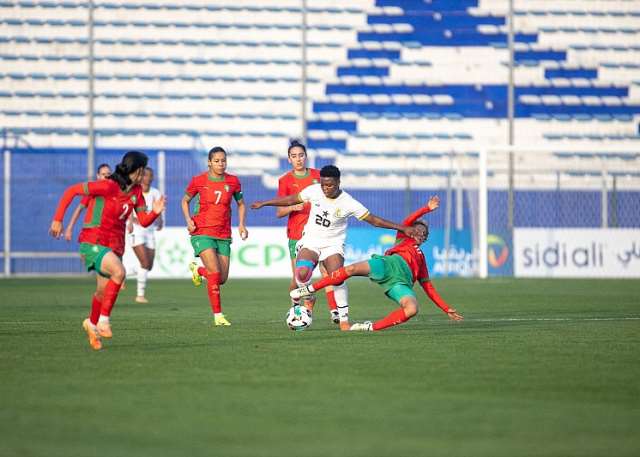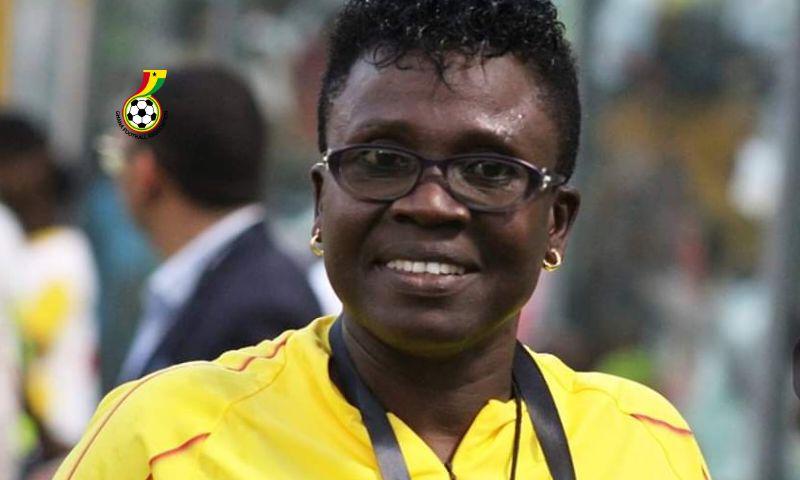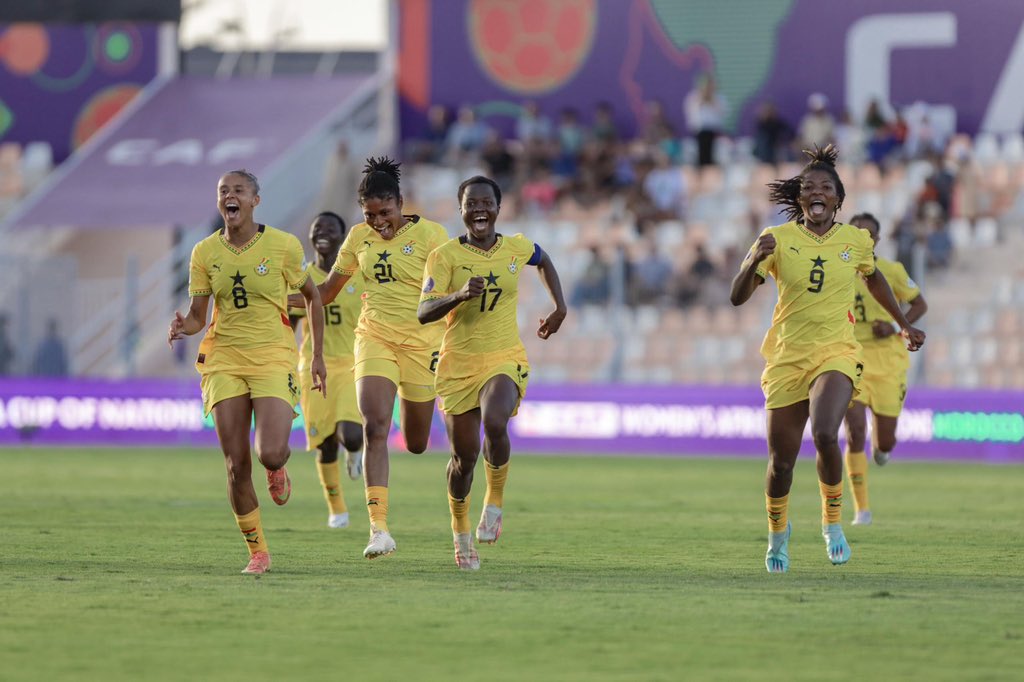When the two sides met in 2022, Ghana and Morocco were at different stages of their respective projects.
Morocco was 18 months into their new project with two-time Champions League winner Reynald Pedros.
The Frenchman was appointed to the role in November 2020, just 18 months after winning his second Champions League title with Olympique Lyon.
The April friendly with the Black Queens, who had not qualified for WAFCON 2022, was part of Reynold Pedros’ pre-tournament preparations.
In the end, Rosella Ayan Ani’s brace secured a comfortable win for the hosts.

At the tournament, Pedros led the hosts to their best performance in a major competition yet, finishing in second place to South Africa.
To put matters into context, that tournament was Morocco’s first appearance in the elite women’s football competition on the continent in 22 years! And they were the hosts.
Before that, Morocco had only qualified for the tournament on two previous occasions: 1998 and 2000.
A year later, Morocco finished second in the group stage of the 2023 Women’s World Cup, qualifying ahead of tournament favorites, before falling to France in the knockout stage.
That performance: a historic second-place finish at WAFCON 2022, and a round of 16 exit at the World Cup, was deemed “unsatisfactory” by the Royal Moroccan Football Federation.
On October 12, 2023, Reynald Pedros was replaced by Jorge Vila, who had just won the World Cup with Spain.
While Morocco was replacing a multiple UEFA Women’s Champions League winner with the current World Cup-winning coach, Ghana, albeit a little underwhelming, was also making changes.
Head coach Mercy Tagoe-Quarcoo made way for Nora Hauptle in January 2023.

As you may have guessed, the GFA statement that announced Tagoe-Quarcoo’s replacement was less colorful.
“From 2009 to 2012, she was a coach at FC Thun and later worked as a conditioning coach for Tennis player Romina Oprandi. Nora previously worked with the Israeli Football Association as Head Coach and Women’s Director for the national team and also had a stint with SC Sand 1946 – a German Women’s Bundeliga club,” the GFA said.
That was the sum of her experience in top-level coaching.
It was a modest appointment, but also a sign of mediocrity; symptomatic of a country that was not looking to challenge for the big things.
Quite a bit has happened since then.
Nora Hauptle launched a failed Olympic qualification bid, but more importantly, returned Ghana to the AFCON.
The story of why she sat on Zambia’s bench at a tournament she qualified Ghana for, is a matter for another day.
But in plain terms, she felt frustrated by Ghana’s preparations for the tournament. So, despite being offered improved terms, Hauptle left the role at the expiration of her contract.
Kim Lars Bjorkegren, who replaced the Swiss, has been a competent hire.
But the state infrastructure behind the project he superintends is nothing compared to what the man in the opposite dug out enjoys.
In the last 10 years, there have been three mass player revolts, and they were all because of money.
In September 2015, the Queens refused to leave the M-Plaza hotel over unpaid bonuses after winning gold at the African Games in Congo Brazzaville. The amount involved was $25,000 per player.
A year later, the Queens marched to the Parliament of Ghana, and then the Sports Ministry, to demand payment of the same bonuses.
In June 2021, Elizabeth Addo, then captain of the team, complained on Twitter about the team’s lack of preparations ahead of a World Cup Qualifier against Nigeria.
.@ghanafaofficial @MOYSGh we saw 🇳🇬 play 🇵🇹 last nite n they gave a beautiful account of themselves. This a team we play a crucial qualifier game with in a few months and their prep is enviable. Black Queens need good international games to get ready. Please listen to us for once
— Elizabeth Addo (@AmaPele10) June 14, 2021
She was subsequently ostracised from the team for that.
The same problem occurred again when the GFA nearly cancelled scheduled friendlies against Senegal and Tunisia last year.
Why? Let’s just say that between the Ministry and the GFA, neither was ready to raise $40 000 to fund the games at the time!
In the end, the team only played Senegal of the two planned friendlies.
That is the recent history of the women’s game in Ghana and the attitude of successive governments towards it.
Ghana’s Ambassador to Morocco, Mrs. Charity Gbedawo, is expected to be in the VIP box for tomorrow’s game.
Hopefully, she sees the extent of investment Morocco has committed to this project, and how, without ever making it out of a WAFCON group stage, they are suddenly attracting Champions League winners and World Cup winners.

How are the best coaching minds flocking to Morocco?
How are Moroccan clubs suddenly competitive on the continent, even winning the Champions League in 2022?
How do we stop the era of Black Queens players hitting the streets in protest of unpaid bonuses? Or refusing to leave the team hotel over unpaid bonuses?
She is not the Minister for Sports. But she is responsible for the team in Morocco in two weeks, and she has seen the disparity between what we pretend is women’s football management and what actual management of the women’s game is.
Perhaps the Sports Minister, Kofi Adams, has been paying attention.
Even if he has not, it does not take much to spot the chasm between Ghana’s attitude towards the women’s game and how countries like Equatorial Guinea, South Africa, and Morocco approach the game.
DISCLAIMER: The Views, Comments, Opinions, Contributions and Statements made by Readers and Contributors on this platform do not necessarily represent the views or policy of Multimedia Group Limited.
DISCLAIMER: The Views, Comments, Opinions, Contributions and Statements made by Readers and Contributors on this platform do not necessarily represent the views or policy of Multimedia Group Limited.

